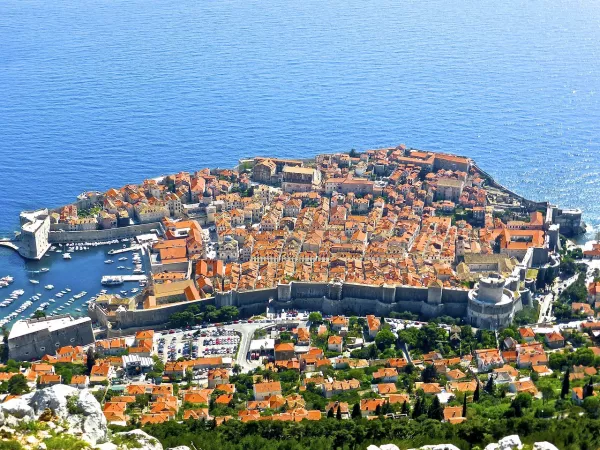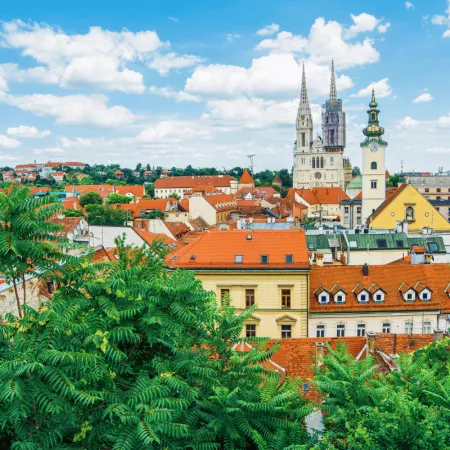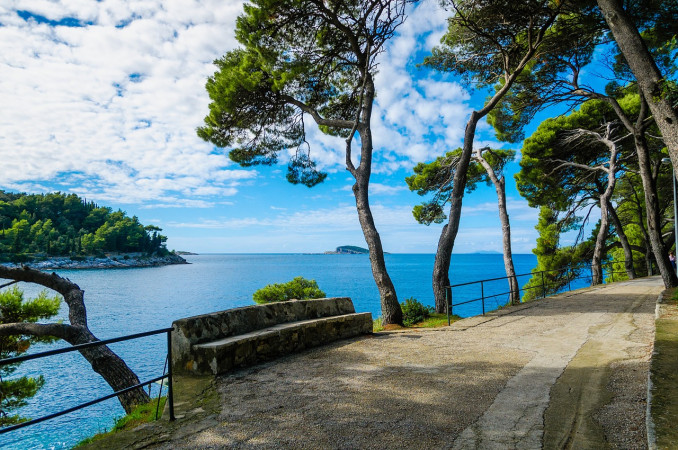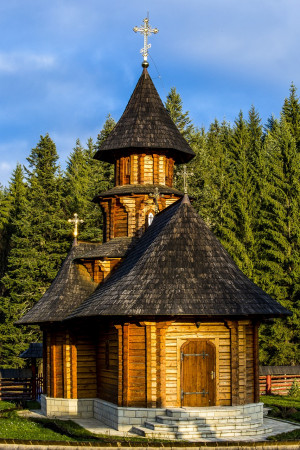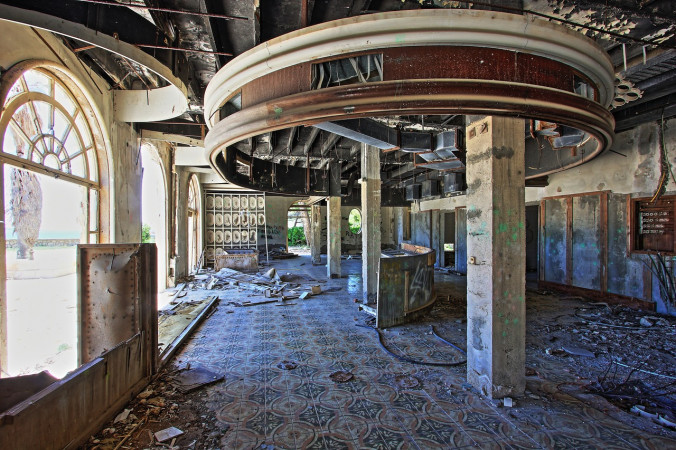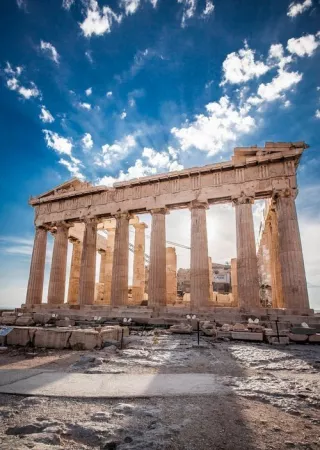Hi User
Navigation
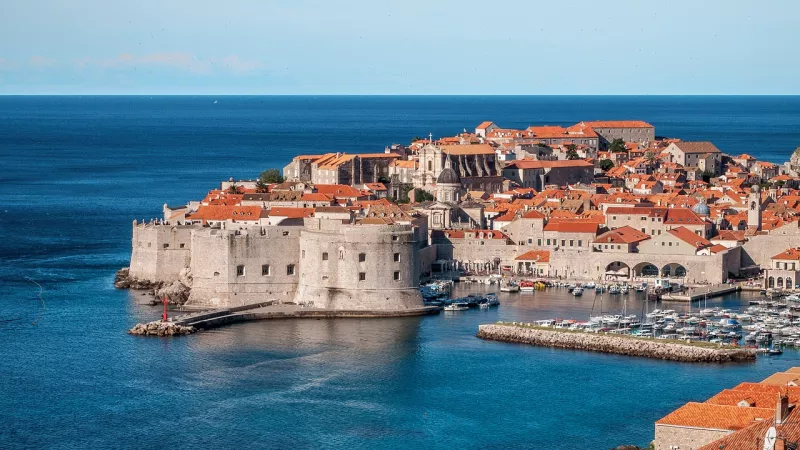
Croatia
Duration
7 to 14 Days
7 to 14 Days
Best time to visit
May-Jun, Sep
May-Jun, Sep
Theme
Beaches, Heritage
Beaches, Heritage
Croatia Travel Guide
Croatia, located in Southeast Europe, is a beautiful country known for its stunning coastline along the Adriatic Sea. With a rich history dating back to the Roman Empire, Croatia boasts a unique blend of Mediterranean and Eastern European cultures. The country is famous for its medieval architecture, crystal-clear waters, and vibrant festivals.Top Attractions in Croatia
- Dubrovnik Old Town
- Plitvice Lakes National Park
- Diocletian's Palace in Split
- Hvar Island
- Korcula Island
Croatia is Famous for
Boasting a stunning coastline and historic architecture, Croatia is most famous for its beautiful beaches and medieval towns.Top Attractions in Croatia
- Exploring the enchanting Dubrovnik Old Town
- Marveling at the cascading waterfalls of Plitvice Lakes National Park
- Discovering the ancient ruins of Diocletian's Palace in Split
- Relaxing on the picturesque islands of Hvar and Korcula
What's Great about Travelling to Croatia?
- Scenic coastal towns and beaches for relaxation
- Rich history and culture to explore
- Delicious Mediterranean cuisine to savor
What's Not So Great about Travelling to Croatia?
- Peak tourist crowds during the summer months
- Limited public transportation options in some remote areas
- Language barrier in smaller towns for non-Croatian speakers
Travel Tips for Croatia
- Check visa requirements before travel
- Use local currency Kuna for transactions
- Stay cautious of pickpockets in crowded tourist areas
Important Croatia trip information
- Ideal Duration: 7-10 days to explore major attractions
- Best Time to Visit: May to September for warm weather
- Nearby Airports and Railway Stations: Zagreb Airport, Split Airport, Dubrovnik Airport
Popular Croatia Tour Packages From:
Budget Croatia Tour Packages Under:
Top 9 Places to visit in Croatia
16 days & 15 nights
4.3 (400)
15N/16D Balkan Tour Package
2D Balkan • 2D Bulgaria • 2D Dubrovnik • 2D Romania • 2D Serbia • 6D Venice
Tour package by TripClap
Verified Trustseal
INR 186,541 SAVE INR 46,635
INR 1,39,906 /Adult
7 days & 6 nights
6N/7D Vienna & Croatia Tour Package
0D Bosnia and Herzegovina • 0D Dubrovnik • 0D Greece • 0D Kastoria • 0D Kotoriba • 0D Maribor • 0D Ohrid • 0D Struga • 0D Tirana • 0D Vienna • 7D Zagreb
Tour package by SERENE HOLIDAYS
Verified
INR 144,443 SAVE INR 14,444
INR 1,29,999 /Adult
8 days & 7 nights
4.3 (400)
7N/8D Balkan Tour Package
2D Balkan • 2D Bucharest • 2D Dubrovnik-Neretva • 2D Romania
Tour package by TripClap
Verified Trustseal
INR 245,123 SAVE INR 73,537
INR 1,71,586 /Adult
13 days & 12 nights
4.3 (400)
12N/13D Balkan, Bosnia, Bulgaria & Romania Tour Package
1D Albania • 1D Balkan • 1D Bosnia and Herzegovina • 1D Bulgaria • 1D Dubrovnik-Neretva • 1D Greece • 1D Macedonia • 1D Montenegro • 5D Romania
Tour package by TripClap
Verified Trustseal
INR 248,609 SAVE INR 37,291
INR 2,11,318 /Adult
6 days & 5 nights
4.3 (400)
5N/6D Balkan Tour Package
1D Bosnia and Herzegovina • 1D Dubrovnik-Neretva • 1D Kotoriba • 3D Zagreb
Tour package by TripClap
Verified Trustseal
INR 126,562 SAVE INR 12,656
INR 1,13,906 /Adult
10 days & 9 nights
9N/10D Luxurious Balkan & Greece Tour Package
1D Athens • 1D Balkan • 1D Bosnia and Herzegovina • 1D Croatia (Hrvatska) • 1D Dubrovnik-Neretva • 1D Macedonia • 1D Montenegro • 3D Zagreb
Tour package by FlyRath
Verified
INR 2,34,786 /Adult
FAQ's on Croatia
Q1: What is the best time to visit Croatia?
The best time to visit Croatia is during the shoulder seasons of spring (April to June) and fall (September to October) when the weather is pleasant, and the crowds are thinner. Summer (July and August) is the peak tourist season with hot temperatures and crowded beaches, while winter can be colder with fewer attractions open.
Q2: Do I need a visa to travel to Croatia?
Travelers from the EU, EEA, the US, Canada, Australia, and many other countries do not need a visa for short visits to Croatia (up to 90 days). However, it is essential to check the specific visa requirements based on your nationality before traveling.
Q3: What are the must-visit attractions in Croatia?
Croatia boasts stunning attractions like Dubrovnik's Old Town, Plitvice Lakes National Park, Diocletian's Palace in Split, and the beautiful islands of Hvar and Korcula. Don't miss the historic city of Pula with its Roman amphitheater and the picturesque town of Rovinj.
Q4: Is Croatia a safe place to travel?
Croatia is generally a safe country for travelers. While petty theft can occur in touristy areas, overall, it is considered safe. It is advisable to be cautious of your belongings and avoid isolated areas, especially at night.
Q5: What is the local currency in Croatia and can I use credit cards?
The local currency in Croatia is the Croatian Kuna (HRK). Credit cards are widely accepted in tourist areas, hotels, and restaurants. However, it is recommended to carry some cash for smaller purchases and when visiting local markets.
Q6: What is the local cuisine like in Croatia?
Croatian cuisine is a delightful mix of Mediterranean and Central European flavors. Try dishes like seafood risotto, grilled fish, peka (meat and vegetables cooked under a bell), and the famous black risotto made with cuttlefish ink. Don't forget to taste the local wines and olive oils.
Q7: What transportation options are available in Croatia?
Croatia offers various transportation options including buses, ferries, and domestic flights for traveling between cities. Renting a car is a popular choice for exploring the country's coastal towns and islands. Public transport is efficient, especially in major cities like Zagreb and Split.
Q8: Are there any cultural norms or etiquette I should be aware of when visiting Croatia?
When in Croatia, it is customary to greet people with a handshake, maintain eye contact during conversations, and address others by their titles and surnames until invited to use their first names. Modesty in clothing is appreciated when visiting churches and religious sites. Croatians are friendly and hospitable, so showing respect for their customs and traditions will be well received.
Q9: I am a travel agent. How can I buy travel leads of Croatia?
Register yourself as a travel agent at agents.tripclap.com and then you can buy travel leads to Croatia once your account is approved. For more details contact our support team at +91-8069186564 or support@tripclap.com
Certified
We accept (more)
Members of
Media Recognition
Trusted Partners
Award
Copyrights © TripClap. All Rights Reserved
